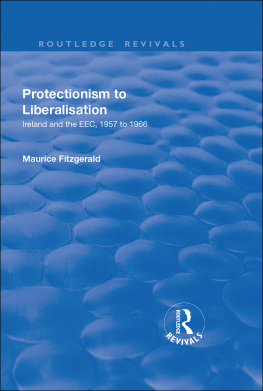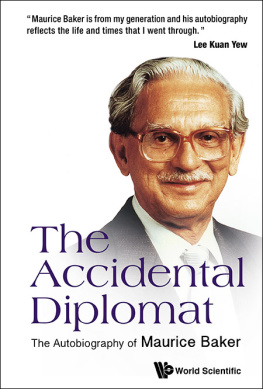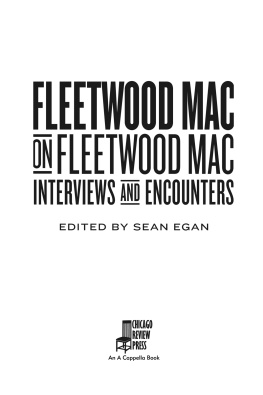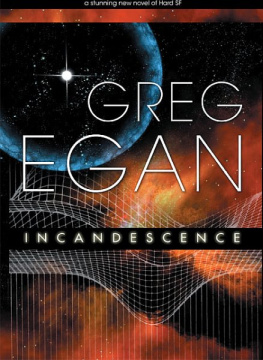Transcriber's note
Obvious punctuation errors have been repaired silently. Word errors have been corrected and a .
Ten Years Near the
German Frontier
A Retrospect and a Warning
By
Maurice Francis Egan
Former United States Minister to Denmark
Hodder and Stoughton
London New York Toronto
Copyright, 1918,
By George H. Doran Company
PREFACE
The purpose of this book is to show the reflections of Prussian policy and activity in a little country which was indispensable to Prussia in the founding of the German Empire, and which, in spite of its heroic struggle in 1864, was forced to serve as the very foundation of that power; for, if Prussia had not unrighteously seized Slesvig, the Kiel Canal and the formation of the great German fleet would have been almost impossible.
The rape of Slesvig and the acquisition of Heligolandthat despised 'trouser button' which kept up the 'indispensables' of the German Navyare facts that ought to illuminate, for those who would be wise, the past as a warning to the future. There is no doubt that the assimilation of Slesvig by Prussia led to the Franco-Prussian war, and liberated modern Germany from the difficulties that would have hampered her intention to become the dominant power in the world. The further acquisition of Denmark would have been only a question of time, had not the march of the Despot through Belgium aroused the civilised world to the reality of the German imperial aggressionuntil then, unhappily, not taken seriously. Had Germany followed the policy which induced her to hold Slesvig, in spite of the promise that the Slesvigers, passionately Danish, might by vote decide their own fateand seize Denmark, the Virgin Islands, not American, would have been German possessions. The change of policy which sent the German army into Belgium and Northern France, instead of into Denmark, was, in a measure, due to the belief in Germany, that the war would be short; and, with France helpless, Russia terrorised and England torn by political factions, she could control the Danish Belts that lead from the North Sea to the Baltic and treat these waters as German lakes.
She reckoned as erroneously on that as she reckoned on controlling the Mediterranean and on smashing the Monroe Doctrine by practically possessing Argentine and Brazil. She built well, however, when she made Kiel the pride of the Emperor and the Empire. Europe watched the process, and hardly gave a thought to the outrage on humanity and liberty it involved. The world is suffering for this indifference. The retention of Danish Slesvig created the German sea power and the constant threat to Denmark concerns us all. It is a world question; and it must be answered in the interest of Democracy.
Denmark is geographically part of Germany. In normal times you reached Berlin from Copenhagen in a night. In a few short hours you may see German sentinels on the Slesvig frontier, and hear the field practice of German guns. A Zeppelin might have reached Copenhagen from Berlin in eight hours, and an army corps might land in Jutland in about double that time.
Copenhagen is so near what was that centre of world politicsthe German courtits royal family is so closely allied with all the reigning and non-reigning royal families of Europe, and its diplomatic life so tense and comprehensive,that it has been well named the whispering gallery of Europe.
I have not attempted to keep out of this sketch of my diplomatic experiences and deductions all traces of amusement; but, as to the terrible seriousness of the greater part of this record, I may appropriately quote the answer of Bismarck's tailor, when that genius of blood and iron accused him of asking an enormous price for a fur coat, of 'joking.' 'No,' answered the tailor, 'never in business!'
And, in spite of the fact that there are lights and even laughs in the diplomatic career, it is a serious business; and the sooner my fellow countrymen recognise this, the fewer international errors they will have to regret.
Maurice Francis Egan.
CONTENTS
Page
CHAPTER I
CHAPTER II
CHAPTER III
CHAPTER IV
CHAPTER V
CHAPTER VI
CHAPTER VII
CHAPTER VIII
CHAPTER IX
CHAPTER X
CHAPTER XI
CHAPTER XII
CHAPTER I
A SCRAP OF PAPER AND THE DANES
Let us trace deliberately, with as much calmness as possible, the beginning of that policy, of 'blood and iron' which made the German Empire, as we knew it yesterday, possible. It began with the tearing up of 'a scrap of paper' in 1864. It began in perfidy, treachery, and the forcible suppression of the rights of a free people. It began in Denmark; and nothing could make a normal American more in love with freedom, as we know it, than to live under the shadow of a tyrannical power, cynically opposed to the legitimate desire of a little nation to develop its own capabilities in its own way.
The Hanoverian on the throne of England in '76,that 'snuffy old drone from a German hive'never dared to suggest that the colonies should be crushed out of all semblance of freedom; but, suppose our language had been different from that which his environment compelled him to speak, and that he had resolved to force his tongue on our own English-speaking people; suppose that he and his counsellors had resolved that German should be the language spoken in sermons and prayers from Washington's old church in Alexandria to Faneuil Hall; suppose that all the colleges and schools of the country, as well as the law courts, were forced to use this alien tongue; that a German-speaking Empire existed to the south of us, and the minority in this German domain, arrogant, closely connected with the Hanoverian rgime, ruled us with the mailed fist, would we submit without constant efforts to obtain justice?
And yet Denmark, in the province of Slesvig, has endured these things since 1864. She alone of all the world resisted the beginning of German tyranny, of German arrogant evolution; and her resistance was useless because the rest of Europe saw in the future neither the German Empire nor the Kiel Canal.
Denmark is, as every schoolboy knows, geographically part of Germany; and the Pan-Germans spoke of it benevolently as 'our Northern province.' It might long ago have been their Northern province if England and Russia had not been powers in the world and if the great Queen Louise of Denmark, a beautiful and fragile little woman, with a heart of gold and a will of steel, had not used all her wits to keep her country free by the only means of diplomacy she knewthe ties of family.
Queen Louise, the wife of Christian IX. , new king of an old line, was not born in the purple, though her blood was the bluest in Europe. The beautiful princesses, her three daughters, later the Empress of Russia, Dagmar, the Queen of England, Alexandra, and the Duchess of Cumberland, Thyra, made their frocks and were taught all the household artsfor their father, royal by blood as he was, was a poor officer.
These princesses hold lovingly in remembrance the time of their poverty; these princesses love the old times. There is a villa on the Strandvej (the beach way) called Hvidhre , white as befits the name, with sculptured sea-nymphs and pretty gardens and a path under the strand to the Sound. Here, until 1914, the Empress Dowager of Russia and the Queen of England regularly spent part of the summer and autumn. The Russian yacht,












